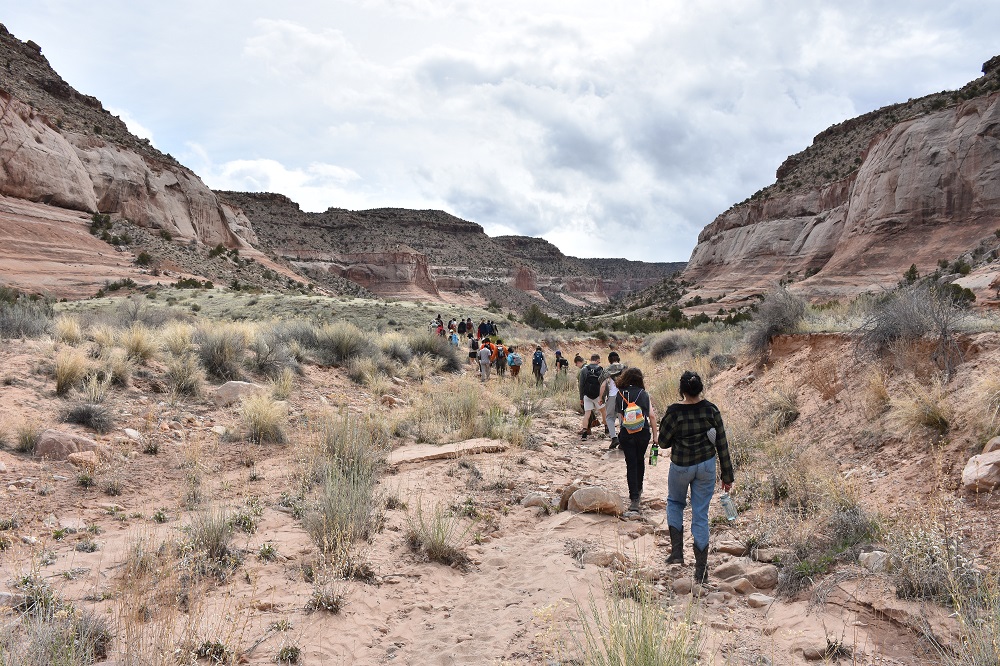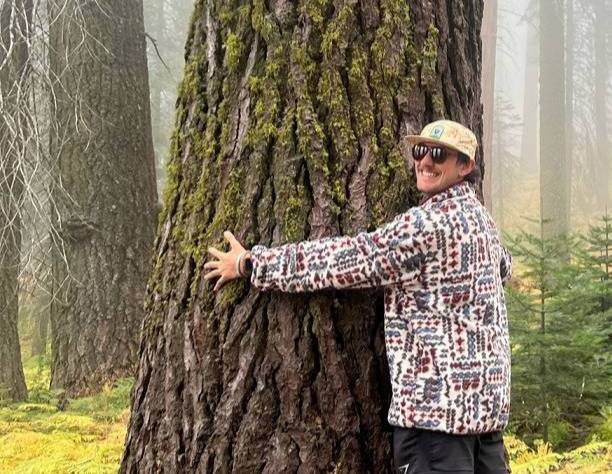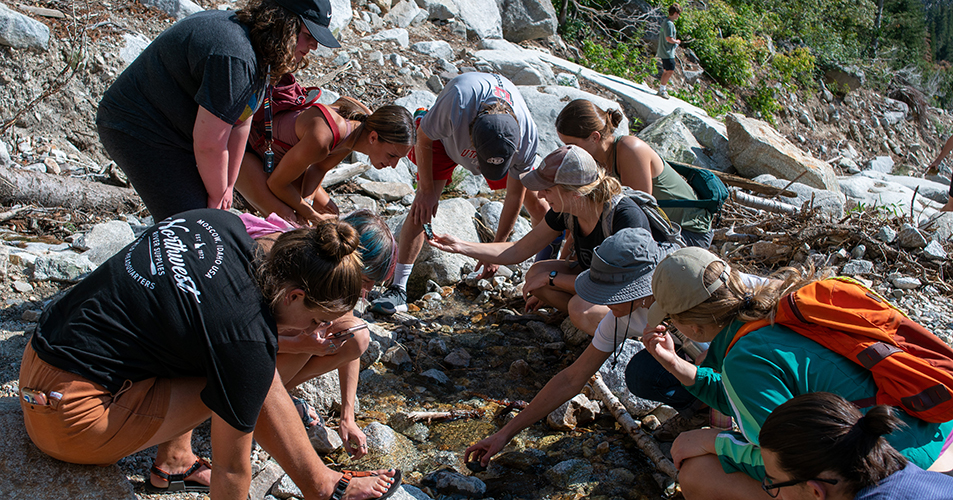The School of Environment, Society and Sustainability (ESS) promotes an integrated understanding of the environment, societies, and the interactions between them, with a curriculum rooted in diverse approaches that helps students understand and contribute to solutions for some of the greatest challenges we face today.
Interdisciplinary learning is a cornerstone of ESS. The 25 faculty in ESS span physical, social, and data science, exposing students to a wide variety of perspectives and cultivating holistic understanding for addressing societal challenges.
ESS offers degrees in three STEM fields and encourages internships and engagement with local communities to make meaningful contributions to solving challenges:
- Environmental and Sustainability Studies (ENVST) provides undergraduate degrees that emphasize an interdisciplinary understanding of ecological systems, human societies, and the consequences of human-environment interactions, and gives students maximum flexibility in taking courses from departments across the University of Utah.
- Geography also focuses on human-environment interactions with additional depth examining these interactions and global change across space and time, offering degrees at the Bachelor’s, Master’s, and PhD levels.
- Geographic Information Science (GIS) focuses on practical skills development involving geospatial analysis, visualization, and modeling. Degrees at the Bachelor’s and Master’s level provide the skills needed for a variety of rapidly growing career opportunities.
The School’s applied, integrative, and solutions-oriented approach is driven by impactful faculty and student research. Faculty in ESS are actively studying a wide range of societally important questions at critical intersections of environment and society. For example: How has the threat from wildfire changed over time, and who is most vulnerable to fires? Why are citizens in lower income neighborhoods exposed to more pollution, and what steps can be taken to reduce exposure? How are glaciers and winter snowpack changing, and what does that mean for water resources? How are agriculture and climate related to migration patterns? How are cities and natural landscapes changing over time, and what are the long-term effects on our health and sustainability? Through a collaborative interdisciplinary lens, ESS advances fundamental socially relevant knowledge for resolving the most significant challenges that we face.
ESS was founded in 2024 by combining two esteemed programs at the University of Utah: the Department of Geography and the Program in Environmental and Sustainability Studies.
Blog
-

Undergraduate Research Opportunities
Learn about opportunities for undergraduate research at the U!
-

Meet the Summer 2025 UROP Scholars!
ESS students are conducting exciting research!
-

Sonam Sherpa: ESS Welcomes Newest Faculty Member
Dr. Sherpa is an Earth Scientist joining faculty as an Assistant Professor.
-

Alumni Spotlight: Allison Padgen
Catch up with Allison, GIS Specialist at Bike Utah.
Events
-
Sep 05
Friday
STEM Safety Day
Alumni House - Eccles (ALUMNI)
-
Sep 08
Monday
Fall 2025 - Census deadline
-
Sep 12
Friday
Fall 2025 First Half - Last day to withdraw from classes
-
Sep 22
Monday
Spring 2026 - Class schedule available
-
Sep 22
Monday
Spring 2026 - Registration dates available
-
Sep 26
Friday
Fall 2025 First Half - Last day to reverse CR/NC option





